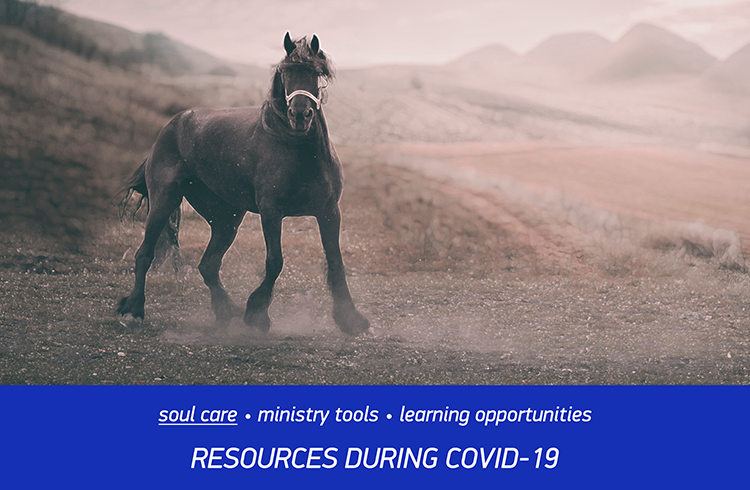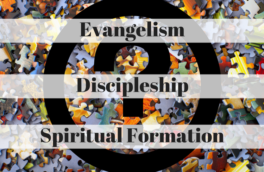At a time like this, I have heard over and over again from pastors that they and their team members are running emotionally amok, and I am too.
We are tired and anxious and have regressed. We have risen to the COVID-19 challenge, but the weight of it, the extra work, the unknowns, and the messiness of re-creating ourselves has caused us to become reactive—and dangerous to each other. So, I want to reflect on this and suggest a way forward. We have risen to the COVID-19 challenge, but the weight of it, the extra work, the unknowns, and the messiness of re-creating ourselves has caused us to become reactive—and dangerous to each other. Click To Tweet
Each of us has within ourselves a beautiful wild stallion or mare, part of the stamp of God’s image. This is our limbic self, our emotional self, which fills our bodies. Without this emotional system, we would struggle with our humanness. We would not reflect God. With it we can love, make deep friendships, connect in communities, create and imagine, protect what matters, play, and be fully alive.1 However, it is wild, so it can be stunted, haunted, trapped, and even cruel. This happens because of sin and because we have been hurt or are malformed. We live in a broken world with broken people, so we each have this reactive, haunted animal in us to varying degrees. And the great task of being formed in Christ is to tame the mare, to tame the stallion.
We have to be intentional to put the jockey—our rational self—back in the saddle with clear control of the reins. I see this as necessary formational work in the very midst of this physical and economic pandemic. Whenever we focus on putting the jockey back in the saddle, we have an opportunity to heal the wild beast of its distrust, insecurities, and fears. In the heart of the horse, we each have an opportunity to release the love and freedom of Christ.
How might we do that?
- Make emotional formational work normative in your context. Give language to it. Give permission to name it together. There is no shame in it. The stallion, the mare, is beautiful, but it must be guided and formed. The Holy Spirit must have authority not just over one’s thoughts, but over one’s emotional wake. It’s not okay to be short-tempered, reactive, fearful, insecure, anxious, not for the pastor and not for the team. It’s not okay to blame, shame, or collude with others to ‘feel better’ about yourself. You’re slapping your horse on the butt to run even harder without control.
- Give the emotional formational work back to the one running out of control.2 This work cannot be done simply with pastoral care. It must belong to the one who is unhinged. It is the responsibility of the person—pastor, staff member, or elder—to do his or her own work. The jockey must be guiding his or her horse, not being dragged behind it.
- Have a clear, known process for emotional formational work (EFW). This work is always an opportunity for the individual and team to become more like Christ. May I suggest?
Step One
Recognize and name when the “Emotional Self” is out of control. So you might say out loud, or create as a church your own language to say out loud:
- “Friends, my mare/stallion is running wild.”
- “Team, our mares/stallions are running wild.”
Friedman writes that a chronically-anxious system has five observable states:
- People being reactive rather than objective or level-headed
- People herding together no matter how toxic
- People blaming others rather than accepting personal responsibility
- People seeking a quick fix to avoid the pain rather than doing the work to mature as individuals and teams
- Leaders who lack differentiation.3
When any of these states are evident, it’s important to name the Emotional Self or Selves that are running wild.
Step Two
Do the spiritual formational work:
- Take time as an individual or team to interrupt the emotional chaos. Stop and give the individual or team 10-30 minutes to reflect and pray. This is priority work. This is not luxury. This is a necessity.
- In reflective prayer, review what triggered your horse to run. Go back into the specific event and play it over in your mind. Resist feeling sorry for yourself. Sit with the Holy Spirit and ask for understanding. The Spirit will comfort you, and the Spirit will also help you identify what is amok in you.
- Journal your thoughts. Take notes on yourself as you examine the event. I find that asking myself the question “WHY” over and over again is very helpful. “Why did that trigger me or bother me?” When you get an answer, ask the question again, “Well, why does that trigger or bother me?” And do it again, until you clearly see what spooked your horse.
Step Three
Bear witness to your insight:
- Confess or state your insight. Have a discussion together about what has happened. Bear witness to the work of the Spirit unveiling your identity and gracing it with the love and light of Christ.
- By bearing witness out loud, we become familiar with what spooks our horses. We develop compassion for each other. We interrupt the emotional chaos process, and we become more Christ-like with each other.
The more you repeat this process, the more you become familiar with what it is like to have the jockey back in the saddle as an individual and as a team. The horse and rider are one. This is not shame work but discernment work. You discern with the Holy Spirit how Christ is maturing you to be more like him. The most direct way to grow is often through a prayerful reflection on our emotional states.
The acronym EFW reminds us that when our stallions or mares are running wild, we are invited to name our emotional reality, to do our formational work, and then to bear witness to others and God.
A gift from the disruption of Covid-19 is an invitation to become more like Christ instead of more like the world. The gift is to become a people of peace who trust God and enter into the fray of this time as priests to a world that desperately needs priestly care.
[1] Pete Scazzero’s book Emotionally Healthy Spirituality and Curt Thompson’s book Anatomy of the Soul make this point.
[2] An important insight from Ronald Heifetz’s book on adaptive leadership, Leadership without Easy Answers, is to give the work back to the people. Tod Bolsinger, using the same leadership theory, covered the point in his book, Canoeing the Mountains.
[3] The popular book by Edwin Friedman, Failure of Nerve, is a must-read or must-review for a time such as this.











Missio Alliance Comment Policy
The Missio Alliance Writing Collectives exist as a ministry of writing to resource theological practitioners for mission. From our Leading Voices to our regular Writing Team and those invited to publish with us as Community Voices, we are creating a space for thoughtful engagement of critical issues and questions facing the North American Church in God’s mission. This sort of thoughtful engagement is something that we seek to engender not only in our publishing, but in conversations that unfold as a result in the comment section of our articles.
Unfortunately, because of the relational distance introduced by online communication, “thoughtful engagement” and “comment sections” seldom go hand in hand. At the same time, censorship of comments by those who disagree with points made by authors, whose anger or limited perspective taints their words, or who simply feel the need to express their own opinion on a topic without any meaningful engagement with the article or comment in question can mask an important window into the true state of Christian discourse. As such, Missio Alliance sets forth the following suggestions for those who wish to engage in conversation around our writing:
1. Seek to understand the author’s intent.
If you disagree with something the an author said, consider framing your response as, “I hear you as saying _________. Am I understanding you correctly? If so, here’s why I disagree. _____________.
2. Seek to make your own voice heard.
We deeply desire and value the voice and perspective of our readers. However you may react to an article we publish or a fellow commenter, we encourage you to set forth that reaction is the most constructive way possible. Use your voice and perspective to move conversation forward rather than shut it down.
3. Share your story.
One of our favorite tenants is that “an enemy is someone whose story we haven’t heard.” Very often disagreements and rants are the result of people talking past rather than to one another. Everyone’s perspective is intimately bound up with their own stories – their contexts and experiences. We encourage you to couch your comments in whatever aspect of your own story might help others understand where you are coming from.
In view of those suggestions for shaping conversation on our site and in an effort to curate a hospitable space of open conversation, Missio Alliance may delete comments and/or ban users who show no regard for constructive engagement, especially those whose comments are easily construed as trolling, threatening, or abusive.